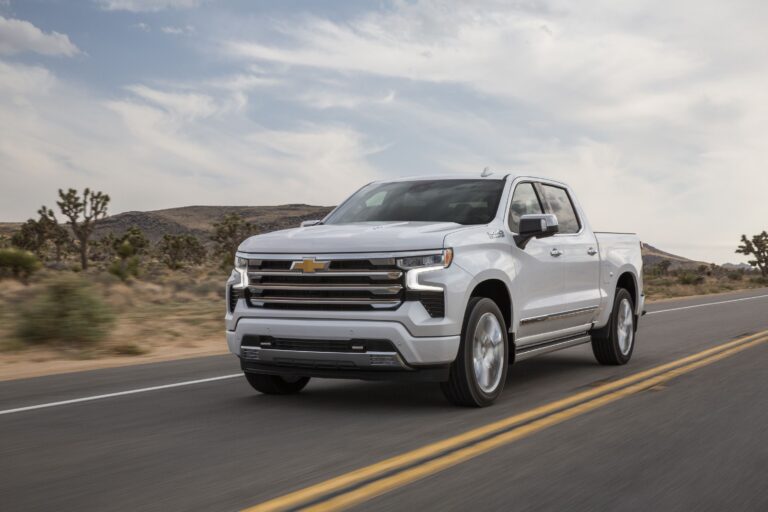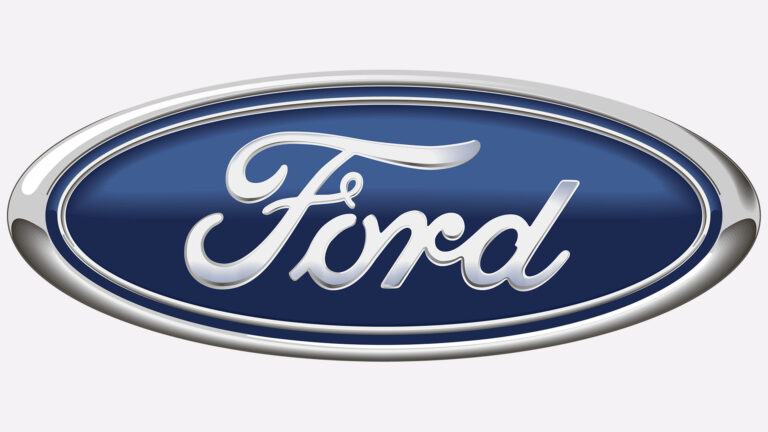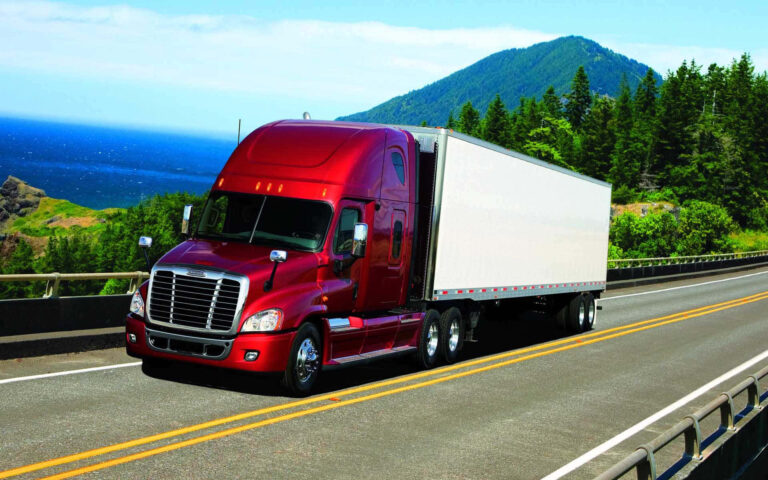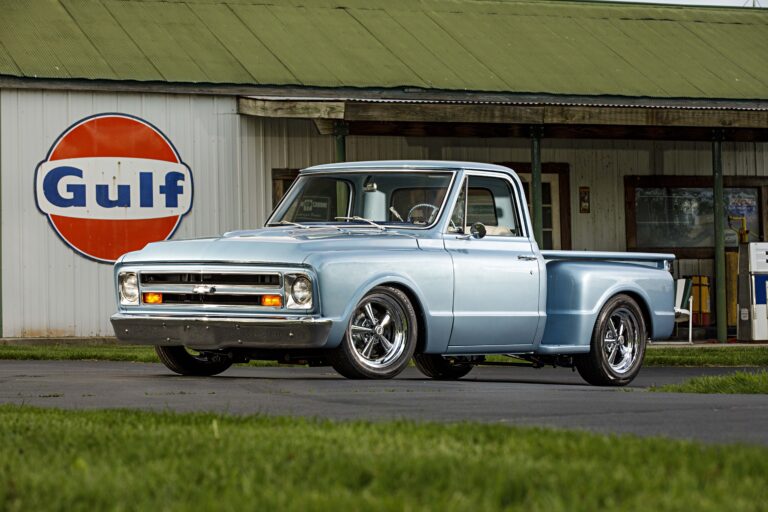Low Cab Forward Trucks For Sale: Your Comprehensive Guide to Smart Commercial Vehicle Acquisition
Low Cab Forward Trucks For Sale: Your Comprehensive Guide to Smart Commercial Vehicle Acquisition cars.truckstrend.com
In the bustling world of commercial transportation, efficiency, maneuverability, and cost-effectiveness are paramount. Businesses, from local delivery services to construction companies, are constantly seeking vehicles that can navigate tight urban spaces, carry substantial loads, and keep operational costs in check. This is where Low Cab Forward (LCF) trucks emerge as a highly practical and increasingly popular solution. When you see "Low Cab Forward Trucks For Sale," you’re looking at a category of vehicles designed from the ground up to meet these specific demands, offering a unique blend of utility and accessibility.
This comprehensive guide will delve into everything you need to know about LCF trucks for sale, from their defining characteristics and undeniable benefits to practical buying advice, key considerations, and a detailed look at their diverse applications. Whether you’re a seasoned fleet manager or a small business owner looking for your first commercial vehicle, understanding the nuances of LCF trucks is crucial for making an informed investment.
Low Cab Forward Trucks For Sale: Your Comprehensive Guide to Smart Commercial Vehicle Acquisition
What Defines a Low Cab Forward Truck?
At its core, a Low Cab Forward truck, often simply called an "LCF" or "cab-over," is characterized by its distinctive design where the driver’s cab is positioned directly over the front axle and engine. Unlike conventional trucks where the engine sits in front of the cab, creating a long hood, the LCF design minimizes the vehicle’s overall length while maximizing its cargo space and driver visibility.
This "cab-over-engine" configuration has been a staple in markets like Japan and Europe for decades, valued for its practicality in densely populated areas. In North America, LCF trucks have gained significant traction, particularly in Class 3-5 commercial vehicle segments, offering an agile alternative to traditional medium-duty trucks. Popular manufacturers offering LCF trucks for sale include Isuzu, Hino, Fuso (Mitsubishi), and certain models from Chevrolet and GMC.
The Unmistakable Advantages of LCF Trucks
The unique design of LCF trucks translates into several compelling advantages that make them a preferred choice for a multitude of commercial applications:
1. Superior Maneuverability and Visibility
Perhaps the most significant benefit of an LCF truck is its exceptional maneuverability. With a shorter wheelbase relative to its cargo capacity and the wheels positioned directly beneath the driver, LCFs boast a tighter turning radius than conventional trucks of comparable size. This makes them ideal for navigating narrow city streets, bustling loading docks, and crowded construction sites. The elevated seating position and expansive windshield offer unparalleled forward and downward visibility, allowing drivers to spot obstacles, pedestrians, and tight parking spaces with greater ease, significantly enhancing safety in urban environments.
2. Maximized Cargo Efficiency and Capacity

By eliminating the need for a long hood, LCF trucks dedicate a larger percentage of their overall length to the body or cargo area. This "cab-over-engine" design allows for a longer body on a shorter wheelbase, optimizing cargo volume and payload capacity without increasing the vehicle’s footprint. For businesses where every cubic foot of cargo space matters, such as delivery services or moving companies, this efficiency is invaluable.
3. Ease of Maintenance and Serviceability
While the engine is under the cab, modern LCF trucks are designed for easy access. The entire cab typically tilts forward, providing unobstructed access to the engine, transmission, and other critical components. This design simplifies routine maintenance checks, reduces diagnostic time, and can lead to lower labor costs for repairs, contributing to better uptime for your fleet.
4. Potential for Enhanced Fuel Economy
Due to their compact design and often lighter curb weight (when comparing chassis only), LCF trucks can sometimes offer better fuel efficiency compared to their conventional counterparts, especially in stop-and-go urban driving cycles. The reduced aerodynamic drag in certain configurations also plays a role in optimizing fuel consumption, contributing to lower operating costs over the vehicle’s lifespan.

Navigating the Market: A Guide to Buying an LCF Truck
Searching for "Low Cab Forward Trucks For Sale" requires a systematic approach to ensure you find the right vehicle for your specific business needs.
Step 1: Define Your Needs and Application
Before browsing listings, clearly define what you need the truck for.
- What type of cargo will you carry? (e.g., packages, furniture, construction materials, refrigerated goods)
- What weight capacity do you require? (This determines the Gross Vehicle Weight Rating – GVWR)
- What kind of terrain will you operate on? (Urban, suburban, highway, off-road)
- What body type is necessary? (Box, dump, stake, flatbed, refrigerated, service)
- What is your daily mileage and route profile? (Short hops, long hauls, frequent stops)
- How many passengers need to be accommodated? (Standard cab vs. crew cab)

Step 2: New vs. Used LCF Trucks
Both new and used LCF trucks offer distinct advantages.
- New LCF Trucks: Offer the latest technology, full manufacturer warranties, customizable upfits, and typically better financing options. They come with peace of mind regarding their condition and history.
- Used LCF Trucks: Present a more budget-friendly entry point. They can be a great value if you find a well-maintained model. However, they may come with limited or no warranty, higher mileage, and potential wear and tear. Thorough inspection is crucial.
Step 3: Budgeting and Financing
Establish a realistic budget that includes not just the purchase price but also potential upfit costs, sales tax, registration, insurance, and ongoing maintenance. Explore financing options, whether through the dealer, a bank, or a specialized commercial vehicle lender. Consider leasing as an alternative if you prefer lower upfront costs and regular vehicle upgrades.
Step 4: Research and Inspection
Once you have a clearer idea of what you need, begin your research.
- Online Marketplaces: Websites like Commercial Truck Trader, TruckPaper, and dealer websites are excellent resources.
- Dealerships: Visit authorized dealerships for new trucks and reputable used truck dealers.
- Fleet Sales: Sometimes larger companies or rental agencies sell off parts of their fleet.
When you find a promising candidate, always conduct a thorough inspection. For used trucks, a pre-purchase inspection by an independent, certified mechanic is highly recommended. Check the engine, transmission, brakes, tires, suspension, frame, and all electrical components. Ask for maintenance records and a vehicle history report (e.g., CarFax for commercial vehicles, if available, or similar services).
Key Considerations When Choosing Your LCF Truck
Beyond the basic needs, several technical specifications and features warrant close attention:
1. Gross Vehicle Weight Rating (GVWR)
LCF trucks typically fall into Class 3 (10,001-14,000 lbs), Class 4 (14,001-16,000 lbs), and Class 5 (16,001-19,500 lbs) categories. Your GVWR choice must align with the maximum loaded weight you intend to carry, including the truck’s curb weight, cargo, and passengers. This also dictates licensing requirements.
2. Wheelbase and Body Compatibility
The wheelbase (distance between front and rear axles) is critical for matching the truck to the desired body type and length. A longer wheelbase generally allows for a larger body and more stable highway driving, while a shorter one enhances maneuverability. Ensure the chassis you choose is compatible with the specific upfit you require.
3. Engine and Transmission
LCF trucks commonly feature diesel engines, known for their torque, durability, and fuel efficiency in commercial applications. Some models offer gasoline engines, which can be less expensive to purchase and maintain, particularly for lighter duty cycles or regions with fluctuating diesel prices. Automatic transmissions are standard in most modern LCFs, simplifying driving for a wider pool of drivers. Consider the horsepower and torque ratings relative to your anticipated loads and routes.
4. Features and Upfits
Look for features that enhance driver comfort, safety, and productivity. This can include air conditioning, power windows/locks, Bluetooth connectivity, rearview cameras, navigation systems, and advanced driver-assistance systems (ADAS) like lane departure warnings or automatic emergency braking. The specific body upfit (e.g., refrigeration unit, liftgate, shelving) will significantly impact the truck’s functionality and overall cost.
5. Manufacturer and Dealer Reputation
Stick with reputable manufacturers known for reliability and a strong dealer network for parts and service. A local dealer with experienced technicians and readily available parts can save you significant downtime and headaches in the long run. Read reviews and ask for references if possible.
Common Applications and Body Types for LCF Chassis
The versatility of LCF chassis makes them suitable for a vast array of commercial applications, typically paired with specialized body types:
- Box Trucks (Dry Van & Refrigerated): Ideal for local deliveries, moving services, and general freight. Refrigerated (reefer) box trucks are essential for transporting perishable goods.
- Stake & Flatbed Trucks: Perfect for hauling construction materials, landscaping supplies, equipment, or anything that needs open-air transport and easy loading/unloading from the sides.
- Dump Trucks: Used in construction, landscaping, and waste management for transporting and dumping loose materials like sand, gravel, and dirt.
- Service & Utility Trucks: Equipped with specialized compartments, cranes, or aerial lifts, these are used by plumbers, electricians, telecom companies, and other field service businesses.
- Specialty Applications: LCF chassis also serve as platforms for street sweepers, tow trucks, car carriers, and even small fire apparatus in some contexts.
Smart Buying Tips for LCF Trucks
- Test Drive: Always test drive the truck, loaded if possible, to assess its performance, handling, and your comfort level.
- Service History: For used trucks, insist on complete service records. This provides insights into maintenance frequency and potential issues.
- Pre-Purchase Inspection: As mentioned, this is non-negotiable for used trucks. A third-party expert can spot problems you might miss.
- Negotiate: Don’t be afraid to negotiate on price, especially for used vehicles.
- Check for Recalls: Verify if the specific make and model has any outstanding safety recalls.
Potential Challenges and Solutions
While LCF trucks offer many benefits, it’s wise to be aware of potential challenges:
- Driver Comfort on Long Hauls: The upright seating position and engine noise (for some older models) can be less comfortable on extended highway trips compared to conventional trucks.
- Solution: Opt for models with air-ride seats, better cabin insulation, and modern infotainment systems. For primarily long-haul operations, a conventional truck might be more suitable.
- Parts Availability for Older Models: For very old or less common LCF models, finding specific parts can sometimes be a challenge.
- Solution: Stick to major manufacturers with strong parts networks. Verify parts availability before purchasing an older, obscure model.
- Specialized Maintenance: While access is good, some LCF systems might require technicians familiar with the cab-over design.
- Solution: Establish a relationship with an authorized dealer or a mechanic specializing in commercial LCF vehicles.
Price Guide: Understanding LCF Truck Costs
The price of "Low Cab Forward Trucks For Sale" varies significantly based on factors such as new vs. used, make, model, GVWR, engine type, mileage, condition, and the specific body upfit. The table below provides approximate price ranges for general guidance. These are estimates and actual prices will vary.
Approximate Price Ranges for Low Cab Forward Trucks (USD)
| Category | Condition | GVWR Class (approx.) | Typical Price Range (USD) | Key Influencing Factors |
|---|---|---|---|---|
| Chassis Cab Only | New | Class 3-5 | $38,000 – $70,000 | Manufacturer, engine type, features, wheelbase. |
| Used | Class 3-5 | $18,000 – $50,000 | Age, mileage, condition, maintenance history. | |
| Box Trucks | New | Class 3-5 | $65,000 – $110,000+ | Box length, height, material, liftgate, refrigeration. |
| Used | Class 3-5 | $30,000 – $85,000 | Box condition, refrigeration unit age/functionality. | |
| Dump Trucks | New | Class 4-5 | $75,000 – $120,000+ | Dump body capacity, material, hoist type, PTO. |
| Used | Class 4-5 | $35,000 – $90,000 | Condition of dump body, hydraulics, rust. | |
| Stake/Flatbed | New | Class 3-5 | $60,000 – $100,000+ | Bed length, material (steel/wood), stake pockets, racks. |
| Used | Class 3-5 | $25,000 – $70,000 | Bed condition, frame integrity. | |
| Service/Utility | New | Class 3-5 | $80,000 – $160,000+ | Customization level, crane, air compressor, tool storage. |
| Used | Class 3-5 | $40,000 – $110,000+ | Condition of specialized equipment, rust in compartments. |
Note: These prices are estimates and can fluctuate significantly based on market demand, economic conditions, specific dealer promotions, and the exact configuration and features of the truck.
Frequently Asked Questions (FAQ)
Q1: What is the primary benefit of an LCF truck over a conventional truck?
A1: The primary benefit is superior maneuverability and visibility in tight urban environments due to the cab-over-engine design, allowing for a shorter overall length with maximized cargo space.
Q2: Are LCF trucks more fuel-efficient?
A2: Often, yes, especially in stop-and-go city driving. Their compact design and potentially lighter curb weight (chassis only) can contribute to better fuel economy compared to conventional trucks in similar applications.
Q3: Can I get a crew cab LCF truck?
A3: Yes, many LCF truck manufacturers offer crew cab configurations, providing seating for more passengers, typically 5-7 people depending on the model.
Q4: What maintenance is required for the tilting cab?
A4: The tilting mechanism requires periodic lubrication and inspection to ensure smooth and safe operation. It’s typically part of standard preventative maintenance schedules.
Q5: Do LCF trucks require a special driver’s license?
A5: This depends on the truck’s Gross Vehicle Weight Rating (GVWR) and your local regulations. Most Class 3-5 LCF trucks (under 26,001 lbs GVWR) can be driven with a standard driver’s license, but always verify with your local Department of Motor Vehicles or equivalent authority.
Conclusion
Low Cab Forward trucks represent a smart and strategic investment for businesses prioritizing efficiency, agility, and maximized payload in their commercial operations. Their unique design offers unparalleled maneuverability, excellent visibility, and practical access for maintenance, making them an indispensable asset for urban delivery, construction, service industries, and more. When exploring "Low Cab Forward Trucks For Sale," a thorough understanding of your specific needs, the market, and key vehicle considerations will empower you to make a choice that not only meets your operational demands but also contributes significantly to your bottom line. By following this guide, you’ll be well-equipped to navigate the market and drive your business forward with the right LCF truck.






